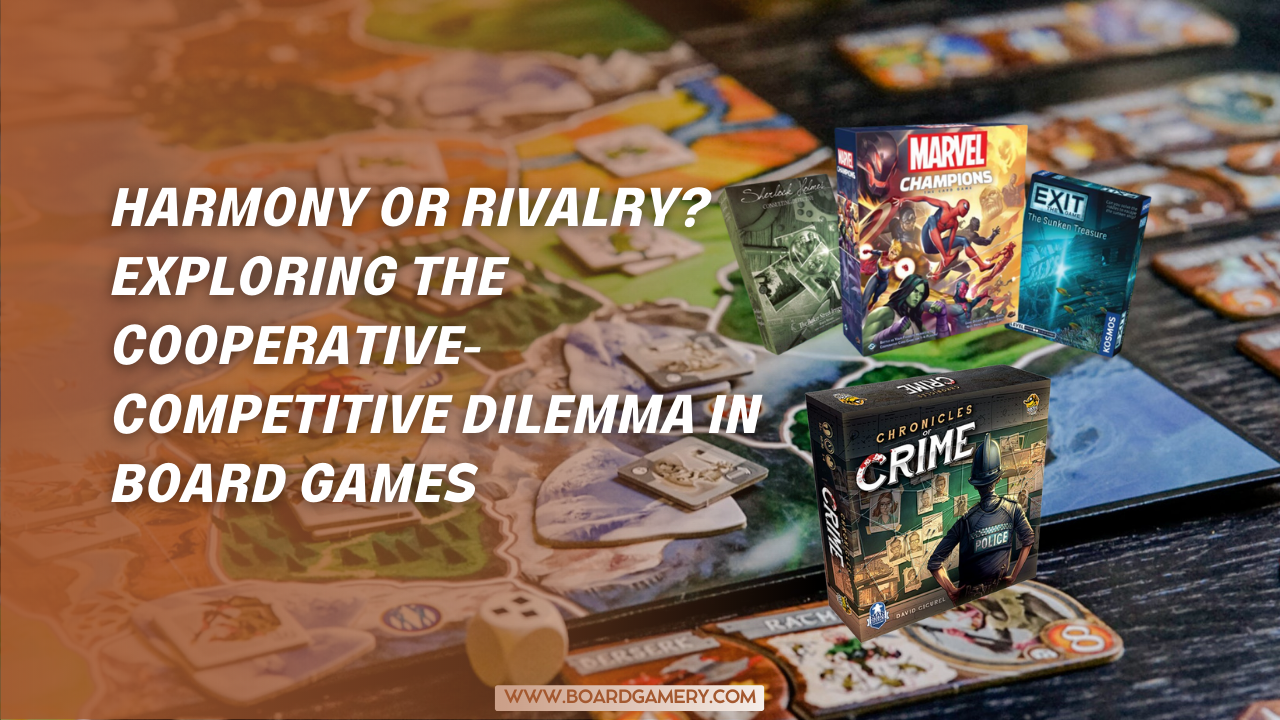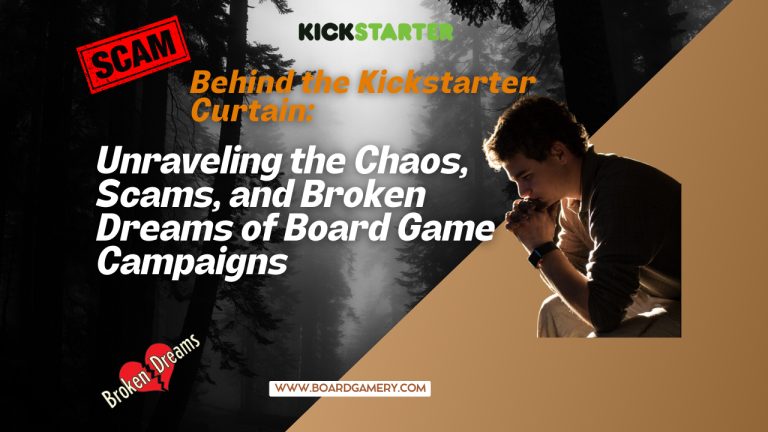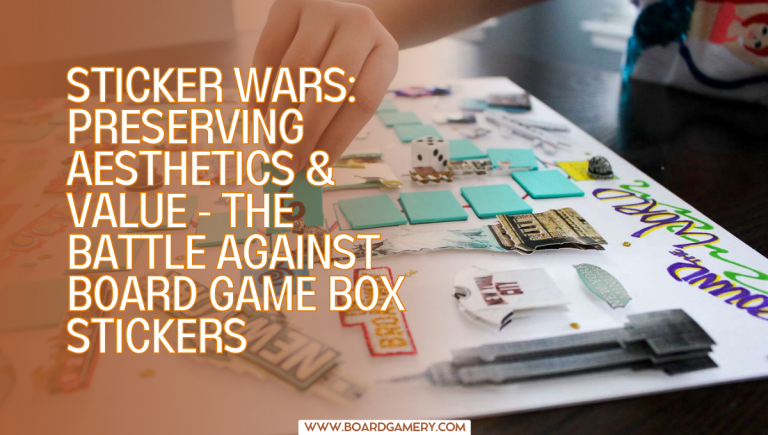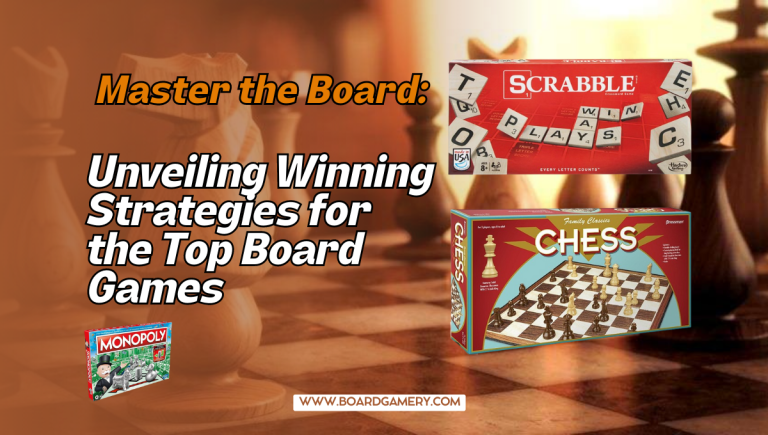Cooperative or Competitive? The Board Game Dilemma Explored
The Great Board Game Cooperation Conundrum: A Tale of Rules, Camaraderie, and Mild Sarcasm
Listen closely, weary readers, and gather ’round the warm glow of your screens. Today, we embark on a whimsical journey into the ancient realm of board games. Our quest is not to discover the next great Eurogame or track down a rare and valuable promo card, but rather, to investigate a peculiar question that has tickled the chin hairs of gamers for generations:
“Isn’t every board game, at its heart, a co-operative game? All players agree to abide by the same ruleset.”
A provocative inquiry, indeed! Prepare your armor of witty repartee and pull up a sturdy chair of open-mindedness… for this casual, humorous, and detailed exploration into the world of board games and cooperation.
The Cooperative Games and War Analogy
Some board games are easily labeled as cooperative—your Pandemics, Forbidden Islands, and the aptly named Spirit Island. Players work together toward a common goal, save the island from angry gods, and achieve a shared victory.
More About Pandemics:

| Rating | 7.6 |
| For Players | 2-4 |
| Time Duration | 45 Min |
| For Age | 8+ |
More About Forbidden Islands:
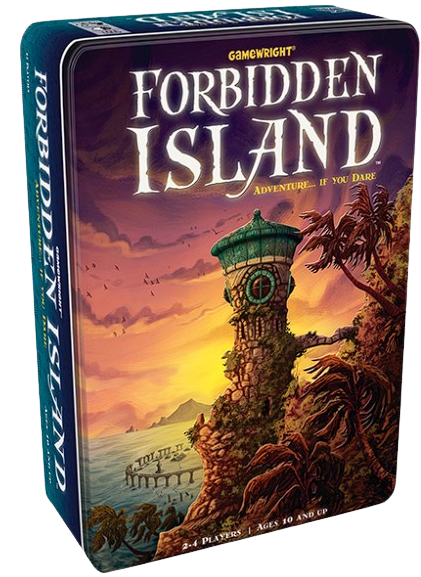
| Rating | 6.8 |
| For Players | 2-4 |
| Time Duration | 30 Min |
| For Age | 10+ |
More About Spirit Island:
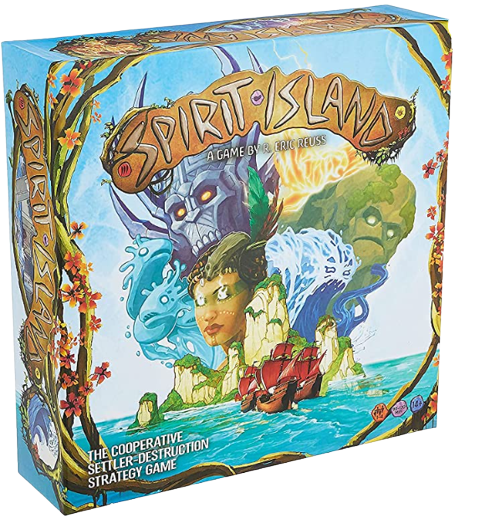
| Rating | 8.4 |
| For Players | 1-4 |
| Time Duration | 90-120 Mins |
| For Age | 13+ |
But then there are othergames—like Dune, Root, and Sidereal Confluence—where players have individual goals, separate factions, and asymmetric abilities. Asking whether these games are cooperative is like asking if war is a group activity. Technically, war could be considered cooperative from a standpoint that all players agree on specific ruleset, but what if cheating was involved? Would we still call it a group activity or a semi-cooperative venture?
More About Dune:

| Rating | 8.0 |
| For Players | 2-6 |
| Time Duration | 120-180 Mins |
| For Age | 14+ |
More About Root:

| Rating | 8.1 |
| For Players | 2-4 |
| Time Duration | 60-90 Min |
| For Age | 10+ |
More About Sidereal Confluence:
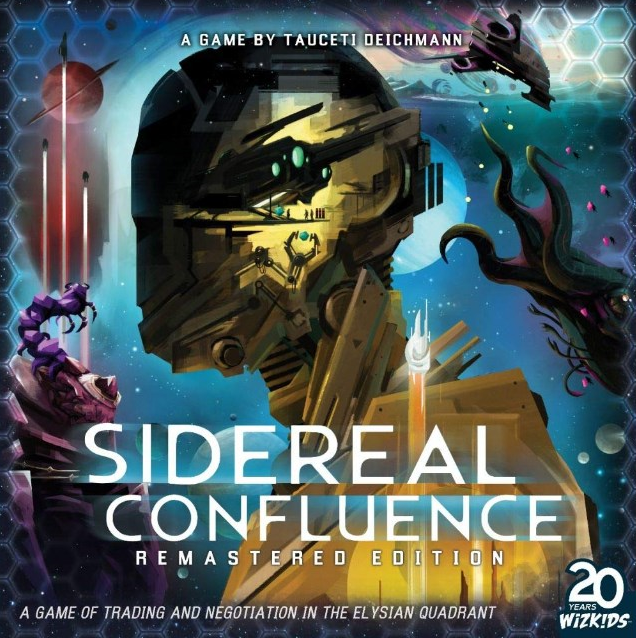
| Rating | 7.8 |
| For Players | 4-9 |
| Time Duration | 120-180 Min |
| For Age | 14+ |
Fists in Gloves: A Boxing Day Thought
If we focus solely on agreed-upon rules, even an activity as cutthroat as boxing couldbe considered cooperative. While this might be a knock to the noggin for those who believe that cooperation inherently means working together towards a mutual victory, it’s essential to remember that agreeing on rules does help maintain the order and fairness of competitive endeavors. But just as no boxer would swing a sword and kick their opponent in the groin during a match (hopefully), most board gamers (again, hopefully) agree to a set of rules that govern their tabletop escapades.

Now, this doesn’t mean your carefree Carcassonne nights are anything like stepping into the boxing ring—please don’t use your meeples as makeshift brass knuckles—but it does highlight that rule-abiding can be seen as a foundational layer of cooperation in any type of game.
Rules, Roleplay, and Reporting in Board Game Land
Returning to the realm of tabletop pastimes, let’s take a closer look at the role of rules in relation to our original question. Rules are the necessary framework that keeps gameplay consistent and enjoyable for all participants. In a way, you could argue that rules act as the “cooperative glue” that bonds groups together, ensuring that everyone is on the same page and playing fair.

However, as any seasoned board game veteran can attest, there will always be those who seek to bend, break, or even flat-out ignore the rules. These renegades may indeed shake the core of cooperation in board gaming. So, does this mean that our very existence as tabletop enthusiasts teeters on the delicate thread of rules and regulations?
Perhaps not. Rules are undoubtedly an important aspect of cooperation in board games, but they serve more as a common language that allows for competition, rather than defining the spirit of cooperation itself. So, in short, no, you don’t need to worry about your love for Settlers of Catan transforming into a twisted, dystopian cautionary tale (unless you fancy a custom fan fiction, that is).
The (Sometimes) Harmonious Hybrid of Competitive Cooperation
As we delve deeper into the enigma that is cooperative competitive gaming, it’s clear that there are no cut-and-dried answers. It’s a remarkable dance—one moment, you’re negotiating an alliance in a tense game of Diplomacy; the next, you’re backstabbing your former partner and conquering their territories without a hint of remorse. Cooperation and competition can often coexist, morph, and even ebb and flow within the same gaming session, forming a beautiful, multilayered tapestry of strategies and alliances.
While we may not have arrived at an indisputable truth regarding our initial inquiry, it’s important to note that, just like board games themselves, there is a gorgeous complexity and diversity at the heart of cooperation.
Rules Schmules, Cooperation Station, and Future Revelations
So, where does this leave us, dear readers? We’ve explored the nuances of rulesets, competitive cooperation, and the inevitable chaos that arises when a wildcard board gamer attempts to throw a wrench into the delicate machinery of gameplay.
While it’s impossible to draw an all-encompassing conclusion that places every board game under the umbrella of cooperation, we can glean some vital and potentially sobering insights:
- Cooperation can exist on many levels and manifest in various forms, even within a single game.
- Rules and conventions, although foundational, do not necessarily dictate the spirit of cooperation in gameplay.
- Even the most competitive games can foster moments of camaraderie and shared goals (though any illusion of cooperation may implode spectacularly).
- Embrace the chaos, y’all.
Key Takeaways
As our journey draws to a close, we can only hope that future tabletop sessions and heated debates will continue to whet our insatiable appetite for understanding the true nature of cooperative gaming. Until then, may we all find a little peace (and possibly victory points) in acknowledging life’s beautifully grey areas of cooperation and competition—and try not to throw any punches during game night.
